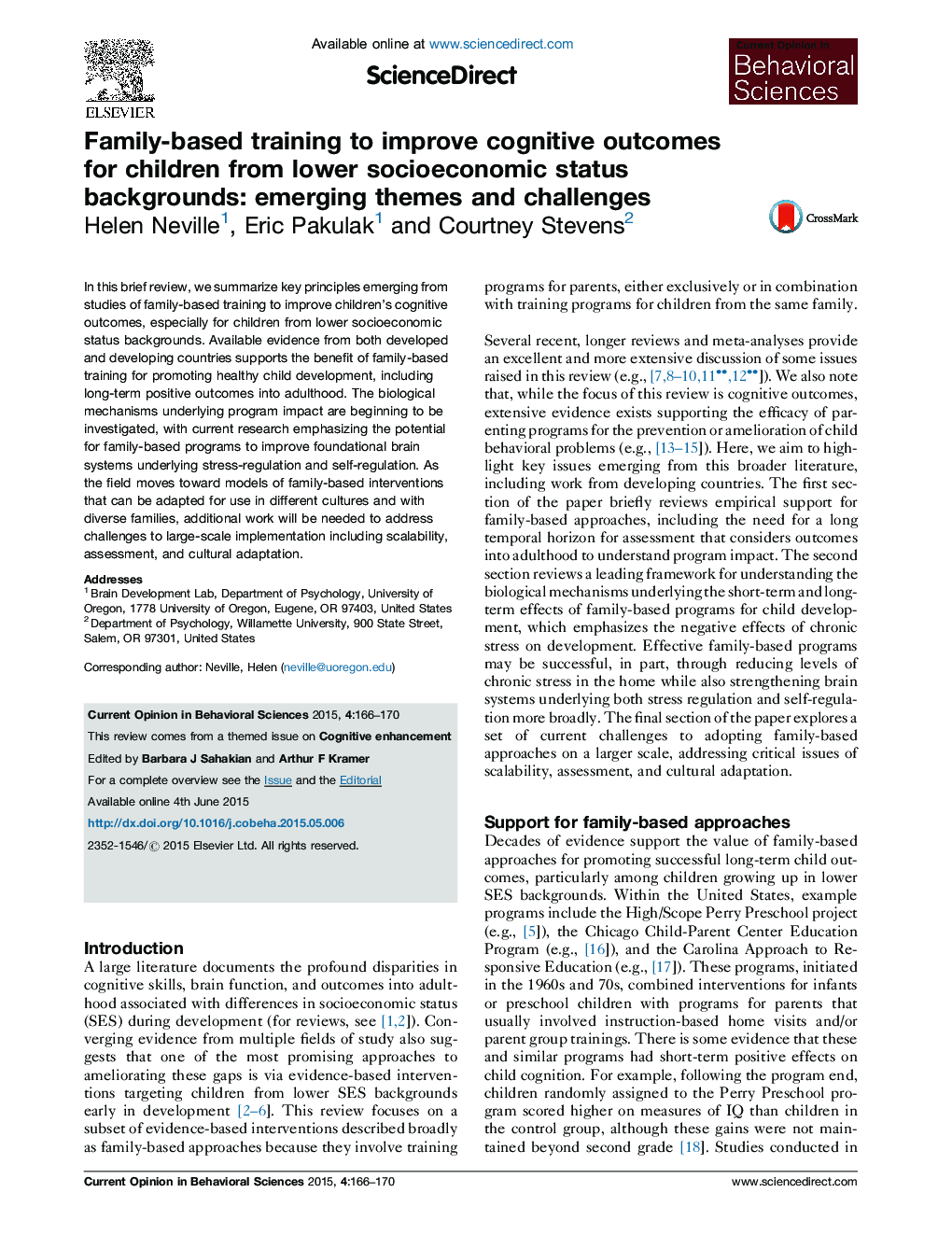| Article ID | Journal | Published Year | Pages | File Type |
|---|---|---|---|---|
| 6260715 | Current Opinion in Behavioral Sciences | 2015 | 5 Pages |
â¢Family-based training can improve child cognitive outcomes.â¢Proposed biological mechanisms include changes in stress-regulation and self-regulation.â¢However, current challenges to large-scale implementation need to be addressed.â¢These challenges include scalability, assessment, and cultural adaptation.
In this brief review, we summarize key principles emerging from studies of family-based training to improve children's cognitive outcomes, especially for children from lower socioeconomic status backgrounds. Available evidence from both developed and developing countries supports the benefit of family-based training for promoting healthy child development, including long-term positive outcomes into adulthood. The biological mechanisms underlying program impact are beginning to be investigated, with current research emphasizing the potential for family-based programs to improve foundational brain systems underlying stress-regulation and self-regulation. As the field moves toward models of family-based interventions that can be adapted for use in different cultures and with diverse families, additional work will be needed to address challenges to large-scale implementation including scalability, assessment, and cultural adaptation.
